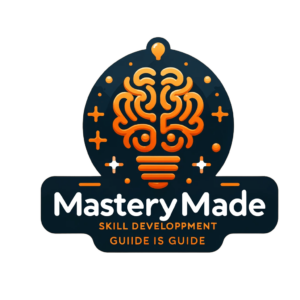We all know the feeling of being overwhelmed by the hustle and bustle that life incessantly throws our way. However, it doesn’t have to be an uphill battle against stress. With the right stress management techniques, we can transform our daily lives into a more peaceful and fulfilling journey. Embracing self-care habits and mindful living tips isn’t just about feeling better in the moment—it’s about crafting a sustainable and joyous way of life. Join us as we explore easy-to-adopt strategies that can make a world of difference to our overall wellbeing.
Key Takeaways
- Identify simple, yet powerful, stress management techniques to reduce daily stress.
- Discover self-care habits that contribute to long-term happiness and health.
- Learn mindful living tips that can easily be incorporated into your routine for greater joy.
- Understand the importance of creating a personal haven through mindful practices.
- Recognize the transformative power of adopting a slower, more intentional pace of life.
- Gain insights into how small lifestyle changes can lead to significant positive outcomes.
Understanding the Impact of Stress on Our Lives
In today’s fast-paced world, personal development and mastery over stress have never been more imperative. As we guide you through mindfulness for beginners, it’s crucial to first comprehend the breadth and depth of stress’s impact on our daily existence. Stress management techniques are not just beneficial, they are essential for maintaining psychological and physiological health. Let’s delve into what modern science tells us about stress and why personalized tactics are key to thriving in a high-pressure society.

The Science of Stress and Its Effects on Health
Our journey into stress management begins by unearthing the science behind stress. It’s a fact that stress induces a torrent of hormonal reactions, with cortisol and adrenaline leading the charge. In small, acute doses, these responses can be beneficial, instigating the classic ‘fight or flight’ mechanism. However, when stress becomes chronic, it weaves a complex web of health risks ranging from compromised immunity to mental health challenges.
Recognizing Personal Stress Triggers for Better Management
Navigating the path of personal development requires recognizing personal stress triggers—first steps for any novice in mindfulness. Identifying these triggers allows for the development of individualized stress management techniques, carving out a personalized blueprint for calm and contentment. Understanding what sets off our stress response is often as crucial as the coping mechanisms we put in place.
| Common Stress Triggers | Effects on Health | Mindfulness Counteractions |
|---|---|---|
| Work-Related Pressures | Increased risk of burnout | Guided meditation during breaks |
| Financial Worries | Elevated blood pressure | Conscious budgeting with self-compassion |
| Personal Relationships | Anxiety and depression | Mindful communication practice |
| Health Concerns | Disturbed sleep patterns | Daily gratitude and body-awareness exercises |
| Digital Overload | Reduced attention span | Scheduled digital detox periods |
Our capacity to manage stress not only determines our day-to-day well-being but also shapes the trajectory of our personal development. As we espouse mindfulness for beginners, we embrace stress management techniques tailored to specific needs, fostering a resilient mindset that converts potential stressors into opportunities for growth and reflection.
Embracing Mindful Living Mastery for Daily Joy
As we delve into mindful living mastery, it’s essential to recognize that it is much more than a buzzword—it’s a transformative lifestyle choice that infuses every moment with intentionality and awareness. Conscious living encourages us to make deliberate choices that align with our deepest values, facilitating a more authentic and joy-filled existence. Through mindfulness, we attune ourselves to our actions, thoughts, and the environment, forming more profound connections with the world around us.
To support you in this journey, here is a compilation of mindfulness resources that we have found incredibly beneficial. We have chosen these resources for their ability to guide individuals toward a deeper understanding and practice of mindfulness, even amidst the hustle and bustle of modern life.
| Resource | Type | Description | Accessibility |
|---|---|---|---|
| Mindfulness-Based Stress Reduction (MBSR) Programs | Course | Structured programs offering mindfulness training to help reduce stress and increase well-being. | Available online and in-person |
| Daily Meditation Podcasts | Audio | Short, daily guided meditations to help cultivate a regular practice. | Free access through various podcast platforms |
| Insight Timer | App | A free app offering guided meditations and music tracks from mindfulness experts. | Free with optional paid content |
| Local Mindfulness Workshops | Event | Community-based workshops providing hands-on experience with mindfulness techniques. | Varies by location |
Remember, the mastery of mindful living is not an overnight feat but a fulfilling journey. By tapping into the wealth of
mindfulness resources
available, we can all take incremental steps towards embracing a life of full awareness and joy. Whether it’s beginning the day with a short meditation session, attending a MBSR program, or merely taking a few deep breaths before a meal, the path to
conscious living
is filled with simple yet profound opportunities for growth.
“Mindfulness is the aware, balanced acceptance of the present experience. It isn’t more complicated than that. It is opening to or receiving the present moment, pleasant or unpleasant, just as it is, without either clinging to it or rejecting it.”
— Sylvia Boorstein
Incorporating Mindfulness Practices into Your Routine
Mindfulness is more than just a practice; it’s a way of living. By weaving mindfulness exercises and stress management techniques into the fabric of our daily life, we enhance our well-being in a natural and sustainable manner. Our goal is to share efficacy-driven mindfulness resources that not only enrich your mornings but also provide refuge from the day’s professional pressures.
Simple Mindfulness Exercises to Start Your Day
Starting your day with intention can profoundly affect your mood and productivity. Here are some easy exercises to help you transition from the tranquility of sleep to the dynamism of day:
- Dedicate five minutes to deep, focused breathing before getting out of bed to center your thoughts.
- Practice gratitude by jotting down three things you’re thankful for every morning; this promotes a positive mindset.
- Enjoy a mindful morning beverage ritual by paying attention to the aroma, temperature, and taste of your coffee or tea.
Each of these practices can serve as the cornerstone of a day filled with mindfulness and serenity.
Mindfulness Techniques for Coping with Work-Related Stress
At work, stress can often seem inevitable, but by integrating mindfulness techniques, we can foster a more peaceful and productive environment. Here’s how:
- Take mini-breaks for deep breathing or a brief walk, disconnecting from stressors and resetting your focus.
- Engage in a single-tasking approach instead of multitasking, allowing for full immersion and less cognitive overload.
- Conclude the workday with a reflective practice, assessing accomplishments and setting intentions for the next day.
These stress management techniques can create a buffer against work-related stress, enabling a more mindful approach to your career.

Our mission is to support and guide you towards a more mindful routine, ensuring that each day is met with tranquility and purpose. The transformative power of these practices lies in their consistency, so we encourage you to adopt them as key components of your daily life. By doing so, you’ll experience a profound shift in your relationship with stress and an enhancement in overall quality of life.
Creating Self-Care Habits for Long-Term Wellness
We all seek a mosaic of habits that not only elevates our daily experiences but roots us in a state of lasting wellness. Embracing *self-care habits* is not a sporadic indulgence, but a cornerstone of sustained personal development and conscious living. Let’s embark together on a journey to curate self-care practices that resonate deeply with our personal narratives and lifestyles.
“Taking care of yourself doesn’t mean me first, it means me too.”
Sustained self-care nurtures your inner garden, allowing your abilities and strengths to bloom. It’s a dialogue between body and mind that evolves as you wade through life’s changing tides. Imagine self-care as a golden thread in the fabric of your life; a strong, shimmering inclusion that holds everything together seamlessly.
To help guide your creation of self-care routines, we offer a framework that balances the essentials of a fulfilling life:
| Self-Care Dimension | Why It Matters | Sample Activities |
|---|---|---|
| Physical Wellness | Caring for your body increases energy levels and combats stress. | Regular exercise, nutritious meals, ample sleep. |
| Emotional Well-being | Understanding and respecting your feelings prevent overwhelm. | Journaling, therapy sessions, mindfulness practices. |
| Intellectual Growth | Stimulating your mind keeps you engaged and expands perspectives. | Reading, puzzles, learning a new skill. |
| Spiritual Connection | Aligning with your values gives purpose and fulfillment. | Meditation, nature walks, volunteer work. |
These tailored self-care rituals pave the path towards resilience—bolstering your ability to enjoy life’s peaks and persevere through its valleys. Why not start today by picking one activity from each dimension and incorporate it into your week? It’s a simple, yet powerful, stepping-stone towards holistic well-being.
- Commit to daily walks for physical health.
- Reserve a quiet moment each evening for reflection to soothe your emotions.
- Challenge your intellect with a book outside your usual genre.
- Discover a cause that ignites your spirit and dedicate time to it.
Remember, these habits are as unique as you are; what works for one may not resonate with another. And that’s okay—self-care is a personal journey, after all.
As we cultivate these self-care habits, we not merely survive—we thrive with vigor and purpose. We empower each other to live more consciously, deliberately, and wholeheartedly. Together, in the spirit of community and shared wisdom, we forge a path to enduring tranquility.
Building a Personal Development Plan for Stress Reduction
In our quest for a less stressful existence, we recognize that without a blueprint, our intentions can quickly dissipate in the face of life’s unpredictabilities. As the final stepping stone in our journey, crafting a personal development plan is a crucial move towards sustained stress reduction. We understand that by outlining our desires into structured, achievable segments, we illuminate the path for mindfulness and joy to thrive. Let’s explore how this **personal development plan** serves as the scaffold for our aspirations towards mindful living.
Setting Achievable Goals for Mindfulness and Joy
To usher in a genuine sense of calm and happiness, we begin by setting achievable goals. This tactic breaks down our broader aspirations into manageable milestones. Whether it’s dedicating ten minutes of your morning to meditation or journaling to reflect on daily wins, small **mindfulness practices** lay the groundwork for larger triumphs. We aim to sprinkle our days with these mindful living tips, with the ultimate goal of embedding them deep within our lifestyle, ensuring they become second nature and not just another item on our to-do list.
Assessing Progress and Adjusting Strategies Over Time
As with any significant lifestyle change, the success of our personal development plan hinges on our continued devotion to assess and evolve. It’s not only about the targets we set but also about how we respond when life veers away from the envisioned path. Regular check-ins on our advancements fortify our resolve, prompting us to adjust our approaches where necessary. This adaptive strategy ensures that **mindfulness practices** remain resonant and effective, allowing us to remain agile and responsive to life’s ever-shifting dynamics.
Incorporating these principles into our daily lives, we not only move towards mitigating stress but also foster the roots of joy that once seemed elusive. Our commitment is to keep you informed, inspired, and on-track towards the continuous cultivation of a serene and mindful existence.
FAQ
What are some simple hacks to reduce daily stress?
There are a multitude of simple strategies you can implement to reduce daily stress, such as engaging in physical activity, practicing deep breathing techniques, taking short breaks throughout your workday, and maintaining a regular sleep schedule. Incorporating mindfulness practices and self-care habits into your routine can also be very effective in managing stress levels and increasing overall joy.
How does stress impact our health?
Stress can have numerous effects on your health, including causing or exacerbating conditions like heart disease, obesity, diabetes, depression, and anxiety. Chronic stress can lead to a weakened immune system, making you more susceptible to illnesses. It’s important to adopt mindfulness for beginners and stress management techniques to mitigate these risks.
How can I recognize my personal stress triggers?
Recognizing personal stress triggers involves being mindful and paying attention to the situations, people, or thoughts that consistently lead to feelings of stress. Keep a journal to note when you feel stressed and look for patterns. This mindfulness exercise can help you identify triggers so you can develop strategies to manage or avoid them.
What is mindful living mastery and how can it bring me joy?
Mindful living mastery involves being fully present and engaged in each moment, aware of your thoughts and feelings without judgment. This practice can bring joy by enabling you to appreciate life’s simple pleasures, reduce stress, and react more calmly and compassionately in difficult situations. It requires consistent mindfulness exercises and conscious living habits to develop this kind of awareness.
Can you give examples of mindfulness exercises for my morning routine?
Absolutely! Mindfulness exercises for your morning routine could include practicing meditation or deep breathing for a few minutes upon waking up, setting intentions for the day, engaging in gentle stretching or yoga, and enjoying a mindful breakfast without distractions like your phone or TV. These practices set a positive tone for the day ahead.
What are some effective mindfulness techniques for work-related stress?
To cope with work-related stress, try mindfulness techniques like taking short breaks to practice deep breathing, going for a walk to clear your mind, using guided imagery to reduce tension, or even employing the Pomodoro technique to manage your tasks with regular intervals of rest. Also, applying mindfulness resources, such as apps or online guided meditations, can be helpful during the workday.
How do self-care habits contribute to long-term wellness?
Self-care habits are critical for long-term wellness because they help maintain a balance in your physical, emotional, and mental health. These habits might include regular exercise, adequate sleep, healthy eating, mindfulness practices, and engaging in hobbies you enjoy. They contribute to resilience against stress, elevate your mood, and improve overall life satisfaction.
What should be included in a personal development plan for stress reduction?
In a personal development plan for stress reduction, you should include specific, attainable goals related to mindfulness and self-care, steps for achieving these goals, and resources that can assist you, such as mindfulness for beginners books or courses. Furthermore, it’s vital to have strategies for tracking progress and making adjustments as needed, to ensure the plan remains aligned with your lifestyle and stress-management needs.











